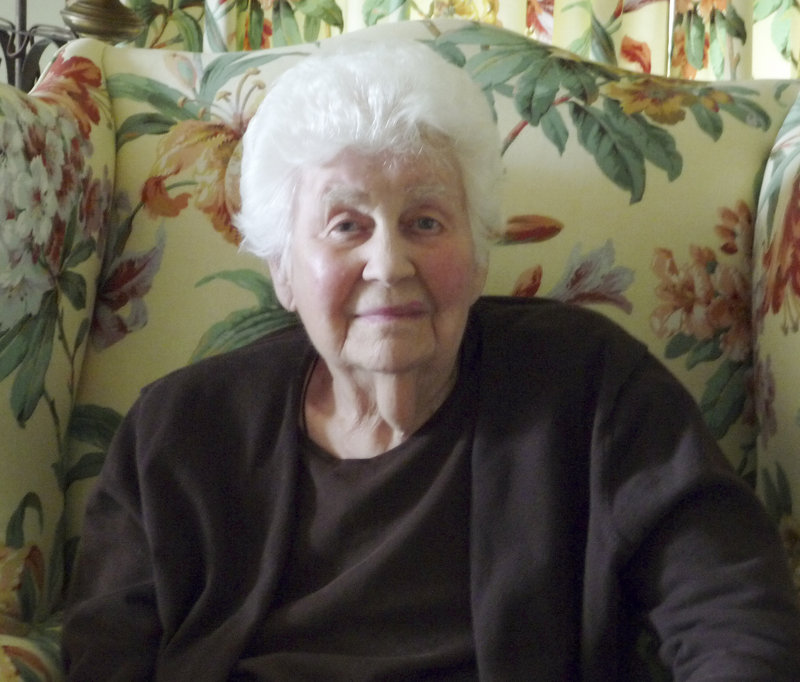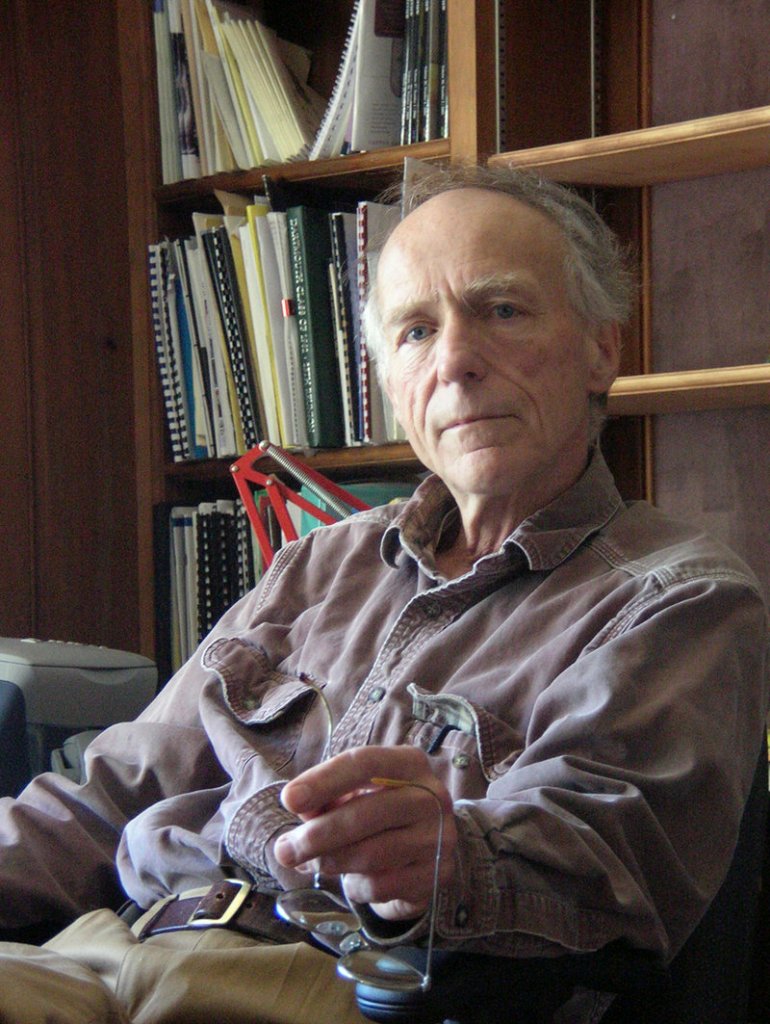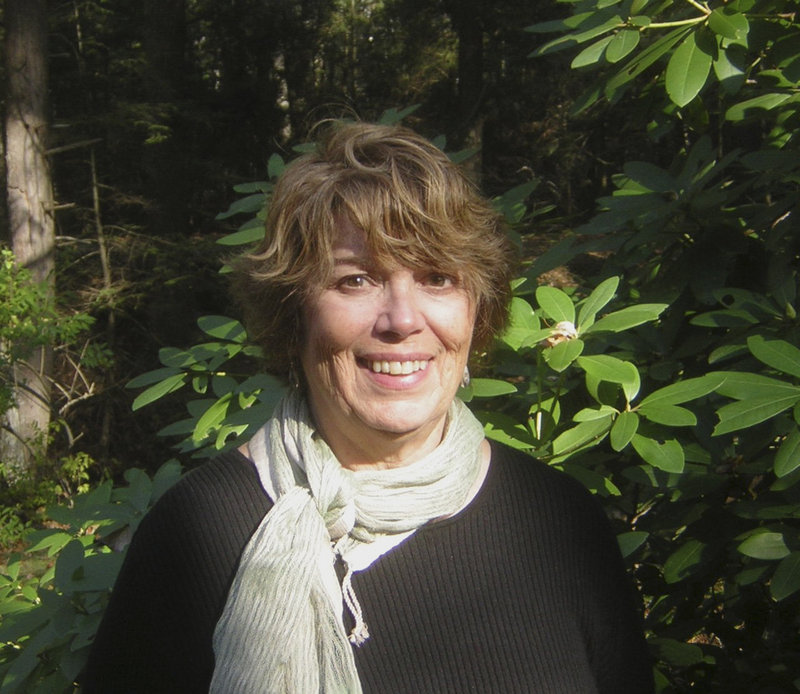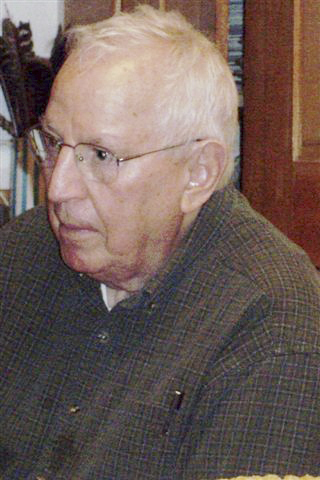When the first Earth Day was celebrated, 40 years ago Thursday, Maine was on the cutting edge of the environmental movement.
U.S. Sen. Edmund Muskie was leading the charge to enact the federal Clean Water Act, which would lead to the rebirth of polluted waterways. A generation of back-to-the-landers was following the footsteps of Helen and Scott Nearing of Brooksville.
The College of the Atlantic in Bar Harbor, an environmentally focused school, was set to open the next year, coinciding with the birth of the Maine Organic Farmers and Gardeners Association, now the nation’s oldest and largest statewide organic organization.
In Maine, the first Earth Day was an understated affair, with the few observances held mostly on college campuses.
Bowdoin College’s student newspaper, The Bowdoin Orient, reported that 50 or so residents, students and faculty members gathered on the banks of the Androscoggin River “to watch State Representative Mrs. Coffey from Sagadahoc fill six flasks with polluted river water” to be mailed to the major polluters and the state for analysis.
For the 40th anniversary of Earth Day, some of the Mainers who participated on April 22, 1970, looked back to what they did on that day.
Bill Carpenter, a founding faculty member of the College of Atlantic, was teaching literature at the University of Chicago. College campuses were in turmoil from the Vietnam War protests, and Carpenter was looking forward to joining the new college in Bar Harbor.
“I remember being absolutely repelled by city life at that point,” said Carpenter, a Waterville native who was itching to get back to Maine.
Carpenter said it was a time when urban intellectuals, such as the poet Allen Ginsberg, were tiring of city life and hoping to renew themselves and their movements by moving to the country.
“People felt that Maine was a place where there was enough emptiness to begin life again. You could buy land here,” said Carpenter.
Dick Barringer, a professor at the University of Southern Maine’s Muskie School of Public Service, was at the precursor of the first Earth Day, an environmental rally in 1969 on the Cambridge Common in Cambridge, Mass.
He was a student at Harvard University’s John F. Kennedy School of Government and attended the rally organized by Denis Hayes, a youth organizer and fellow at the Institute of Politics at the Kennedy school.
Hayes left the next year to become a national coordinator of the first Earth Day.
“I can picture him now,” said Barringer.
“It was on the Cambridge Common with several thousand people, and a lot of my friends were involved.”
Clinton “Bill” Townsend, a lawyer in Skowhegan who has served on the boards of many statewide environmental groups, remembers speaking at the University of Maine on the first Earth Day.
He said it was at the request of a student group, possibly the Effluent Society.
Townsend said he can’t remember exactly what he discussed, but it surely touched on the issues of the day: pesticide spraying in Maine’s forests, pollution of the state’s rivers and harbors, and future use of the state’s North Woods.
“There was a lot of cheering and clapping,” said Townsend.
Marion Fuller Brown, who was a Republican representative from York from 1966 to 1972, was engrossed at the time in passing legislation to ban billboards in Maine. She later founded Scenic America, a national organization dedicated to the protection of natural beauty and distinctive community character.
Now 92, Brown said she has no distinct memories of the first Earth Day but a general sense of the environmental movement. “We were just beginning to think about conservation,” she said.
Joan Saxe, a longtime volunteer with Sierra Club at the state and national levels, was picking up roadside trash on the first Earth Day.
A Maine native she was living in North Carolina at the time and decided to head out and pick up trash with her son, David, a toddler.
“I just didn’t have the time to be in any organized event so I just did it on my own and tried to raise awareness with him.
She said it must of worked because her son went on to work with Outward Bound.
In 1970 Charles Gould, 87, of Freeport was a University of Maine Cooperative Extension Service agent who was getting a lot of requests from people about organic farming.
“There were more and more of what we used to call hippies coming into the state that were following Scott Nearing,” said Gould.
“I didn’t believe much in it but they were very sincere about wanting to do things in a different way , so I did what I could to assist them,” he said.
That involved helping to get like-minded farmers together and publishing the first newsletters of what would turn into the Maine Organic Farmers and Gardeners Association in 1971.
Gould said he doesn’t remember the first Earth Day.
“I had nothing to do with Earth Day at all, or ever,” he said.
Brownie Carson, who has been executive director of the Natural Resources Council of Maine for nearly 26 years, was a student at Bowdoin on the first Earth Day, but he doesn’t remember any celebration.
“It was my first semester back at college after having been in Vietnam, and I was more engaged in the anti-war movement,” said Carson.
He said his Vietnam experience encouraged him to question authority and reassess his life, which led to his interest in social justice issues, a law degree, work with Pine Tree Legal Assistance and, eventually, his position with the Natural Resources Council.
In 1970, Carson said, he was very aware of the stench from the Androscoggin River.
“It really was a filthy open sewer. You could smell it all over Brunswick on warm days,” he said.
Today, the river supports runs of migrating fish, including the endangered sturgeon, and is a popular recreational resource, with a new state park planned on its banks above Lewiston.
The Clean Water Act played a key role in bringing about the recovery of the Androscoggin, a river that carried pollution past Muskie’s home in Rumford at a time when he was crafting the legislation that epitomizes the spirit of Earth Day.
Staff Writer Beth Quimby can be contacted at 791-6363 or at:
bquimby@pressherald.com
Send questions/comments to the editors.








